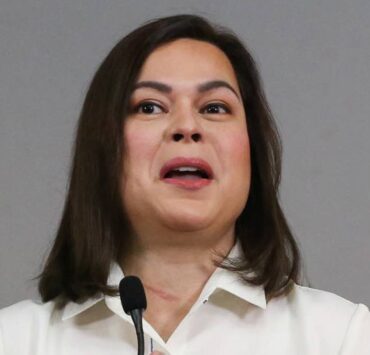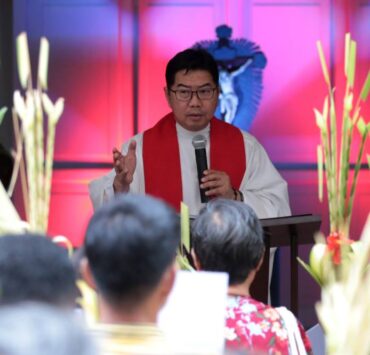RM awardee Ali of Maldives: Saving paradise from plastics
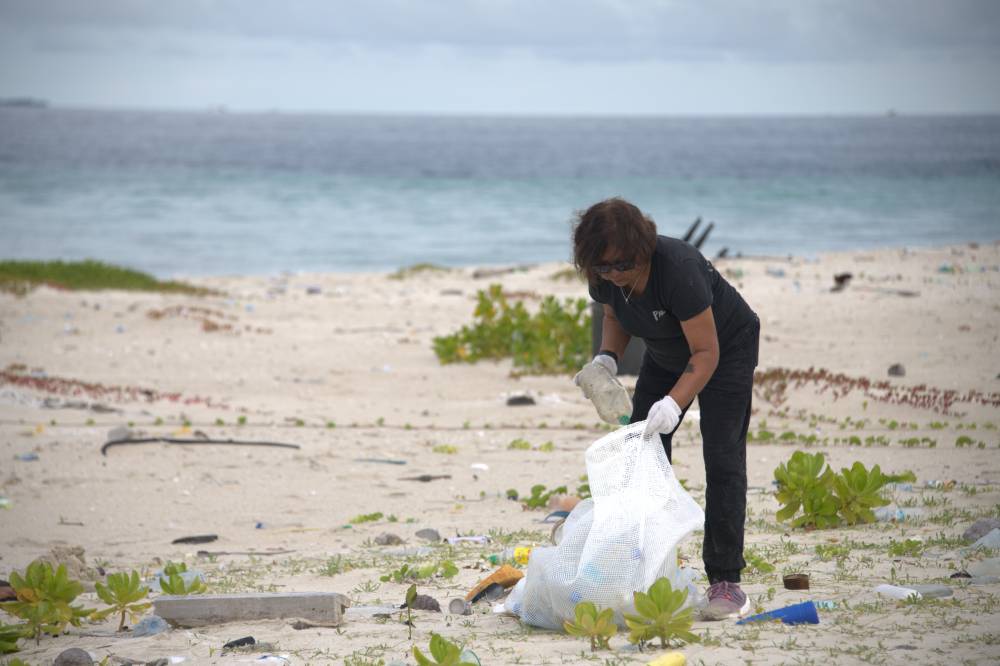
Growing up in the 1970s, Shaahina Ali recalled how she and the other kids would fight over pieces of trash on the beaches of Maldives because they were something “unique.”
“When we go to the islands, we actually don’t see any pollution,” she shared during a press conference earlier this month. “We didn’t have this kind of waste that has come into the Maldives, this kind of imports that we are currently having due to conveniences we have embraced.”
Maldives has gone through rapid development and urbanization, and the pristine beaches that Ali had grown up with have changed. In 2022, the World Bank said that the country produced around 860 metric tons of waste everyday.
“Maldives is a country that imports everything. Even a toothpick is imported here,” Ali noted. “We have nothing that we produce in the Maldives, so imagine the packaging that will come for the half-a-million locals plus 2 million tourists that we have.”
Vulnerability
Worsening the problem is the lack of infrastructure for waste management, which has been a challenge to build in a country made up of 26 atolls and almost 1,200 coral islands that “are so dispersed and so small … the economies of scale don’t match,” Ali said.
“We’ve developed so fast that we have not really thought about the infrastructure,” she said. “We have taken decisions based on immediate needs or immediate expansion, we have never thought of the 20 years ahead of us.”
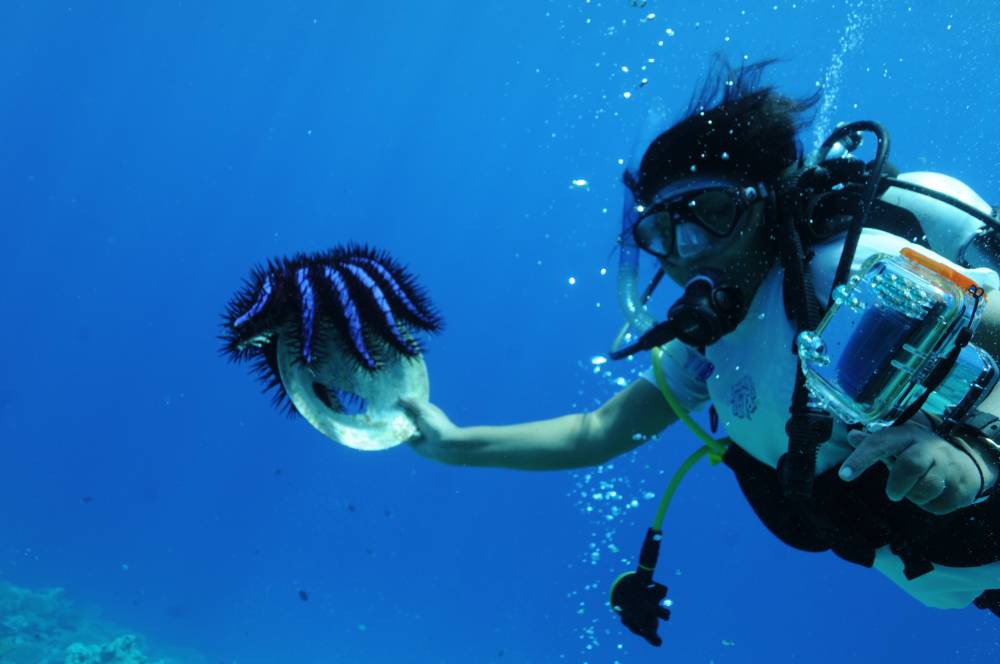
Although Maldives appears as a tropical island paradise to tourists, Ali pointed out that the country is actually “the poster for vulnerability” on the effects of climate change; 80 percent of its land area sits less than one meter above sea level, making it vulnerable to floods and storm surges.
“[The government has] the right mandates, there are written policies, written objectives are there, but they are not focusing on it as a priority, and we are losing a lot of environment that we can’t actually get back,” she said.
Underwater cleanup
This year’s Ramon Magsaysay awardee, who has been involved in her advocacy decades ago, considers the mounting environmental problems of Maldives as compelling reasons to continue fighting back against plastic pollution.
“What we have is the Maldives. It is our home and we have to do everything possible,” Ali said. “Like we say in the Maldives, you swim until you reach shore.”
Growing up swimming in the ocean before becoming a diver at 13 and eventually establishing her own dive center, Ali shared that she conducted her first underwater cleanup in 1990, an initiative she consistently practiced for over 10 years.
After retiring as a dive instructor and closing her dive center in 2006, Ali was then tapped to join the nongovernmental organization (NGO) Parley for the Oceans in 2015.
Now the executive director of Parley Maldives, Ali collaborates with schools in implementing programs such as the “Avoid, Intercept, and Redesign (AIR)” challenge.
Recycling drive
Under the AIR challenge, schools can get points by doing certain tasks, such as avoiding single-use plastics, collecting plastic waste, conducting cleanup activities and holding ocean awareness campaigns.
By getting enough points, schools can reach a certain “milestone” where they receive prizes from Parley. Some schools, Ali recalled, got a water filtration system, allowing students to refill their water bottles and avoid using plastic.
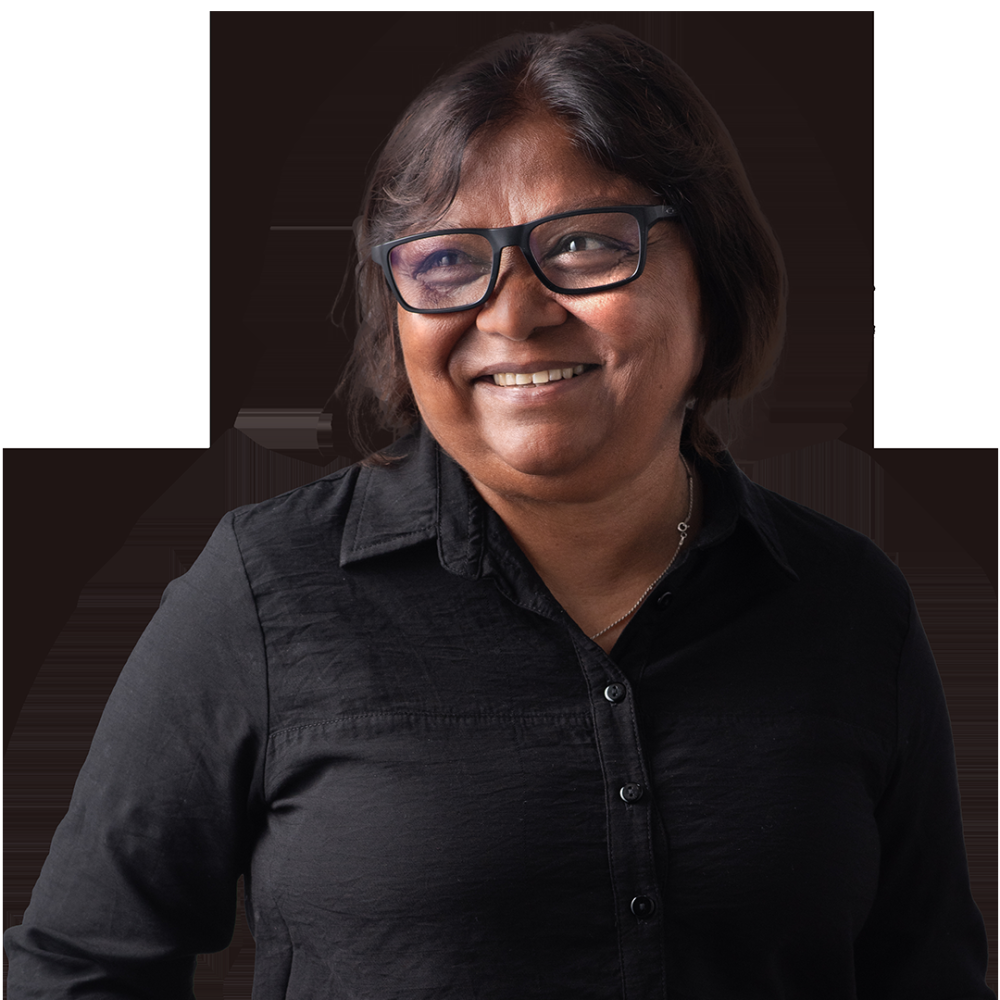
“Going into a school is not just for the kids,” Ali stressed. “We do presentations to every parent. We have parent sessions. So when a parent comes to our presentation, they understand that they need to be a bit more conscious about what they’re giving to the kids.”
With tourism now the leading industry in her country, Ali said Parley has worked with over 70 resorts, which help transport and deliver tons of plastic waste to the organization for recycling.
“It took a while,” Ali said regarding her group’s partnership with resorts. “It didn’t happen in a year or two, but it took about four or five years for us to get the trust of the resorts to understand that this is a program to stay and it is a workable program.”
Tourism with a purpose
Ali shared that because of the lack of waste management infrastructure, trash from resorts are simply dumped in a “garbage island” called Thilafushi, and all the plastic waste is burned.
To address this, Parley began intercepting plastic waste and exporting them to countries with recycling facilities, such as Germany and Taiwan. The NGO has already exported over 4,000 tons out of Maldives for e-purposing.
But more than just dealing with trash from resorts, “purposeful tourism has to come in,” Ali said.
“We believe that purpose is the new luxury for travelers … we are trying to put that into the tourists’ heads,” she added.
Ali, the first Magsaysay awardee from the Maldives, is looking forward to trying out some of the diving spots in the Philippines when she travels to Manila for the first time to receive her award in November.
“I think I have to find similar mindsets. You know, people who are willing to do something for the belief they have and for the change they really want to bring,” she said.














